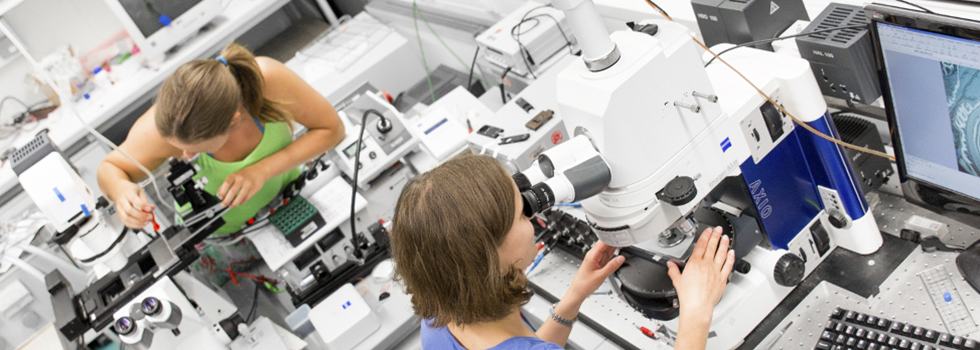Environmental Psychology/Human-Technology Interaction
STUDY PROGRAMME
Environmental Psychology/Human-Technology Interaction
Degree Conferred
Master of Science (M.Sc.)
Duration
4 Semesters
Enrollment
Wintersemester
Admission restriction
Restricted admission
Entry requirements
To apply for the Master’s programme in Environmental Psychology/Human-Technology Interaction the successful completion of a research-oriented Bachelor’s degree of at least three years with a minimum of 180 ECTS (CP) in Psychology or an equivalent three-year research-oriented Bachelor’s degree with a relevant specialisation in fields pertinent to Environmental Psychology/Human-Technology Interaction (e.g., Environmental Sciences, Social Sciences) is required. A minimum grade of 2.5 must be demonstrated. The completed degree must include at least 22 CP in courses covering quantitative methods in Psychology or Social Sciences and at least 50 CP in foundational and applied Psychology courses.
Statutes for the admission and selection procedure for the Master's degree programme in Environmental Psychology/Human-Technology Interaction
Application deadline
Applicants with German Bachelor degree
an der OVGU
15. Juli
Applicants with international Bachelor degree:
über uni-assist
15. Juli
Language
German/English
Objectives
This research-oriented Master’s programme equips students to address evolving societal transformation challenges related to climate change mitigation and digitalisation through psychologically grounded expertise. It provides students with specialised knowledge, skills, and methodologies to enable them to critically evaluate scientific findings and make responsible decisions in interdisciplinary contexts. The programme’s foundation lies in a comprehensive, application-oriented methodological training spanning research methods and evaluation research, diagnostics, as well as environmental and transformation research. Thematic emphasis is placed on environmental psychology, which examines the interplay between humans and their environment, pro-environmental behaviours, and insights from research on public acceptance of climate policies and participatory processes. Additionally, students have the opportunity to engage deeply with specialised topics in human-technology interaction (digitalisation, human factors). Through interdisciplinary seminars, students can develop competencies in cross-disciplinary collaboration on transformation-related issues. The programme’s profile is unique in Germany.
Career Perspectives
The programme provides a broad education and opens up career prospects not only in the rapidly growing field of environmental research but also in diverse applied areas of psychology. Increasingly, employers are embracing environmental psychology and seeking curious, well-informed experts in this field. Potential career paths include roles in consulting institutions, public and private sector companies, associations, NGOs, and public administration. Other opportunities include working for energy and environmental agencies or institutes that design and facilitate participatory processes. Graduates may also pursue careers in educational institutions. Additionally, the programme qualifies students for academic careers in psychology, offering opportunities to advance environmental psychology research at universities or other research institutions.
Competencies and Interests Required
Applicants must demonstrate foundational knowledge from a completed Bachelor’s degree, an interest in deepening their theoretical expertise, and a commitment to developing their competencies through practice-oriented courses and professional internships. It is essential that applicants are willing to critically engage with challenges related to societal transformation.
More information
The programme lasts four semesters and comprises 120 credit points (CP), distributed across compulsory and elective modules, the Master’s thesis, internships, interdisciplinary courses, and freely selectable supplementary subjects. Small class sizes foster an intensive learning environment and enable close student supervision. Some courses in the summer semester are taught in English. The structure and progression of the Master’s programme are governed by the study and examination regulations, which outline the curriculum (including CP allocation for individual modules), types and scope of assessments, and workload requirements. Specific details about the internship are defined in the programme’s internship regulations.





